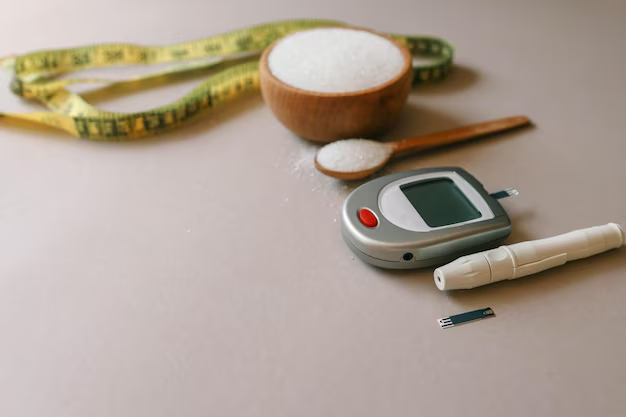Your Guide to What Does Diabetes Fatigue Feel Like
What You Get:
Free Guide
Free, helpful information about Diabetes FAQ and related What Does Diabetes Fatigue Feel Like topics.
Helpful Information
Get clear and easy-to-understand details about What Does Diabetes Fatigue Feel Like topics and resources.
Personalized Offers
Answer a few optional questions to receive offers or information related to Diabetes FAQ. The survey is optional and not required to access your free guide.
Understanding the Weight of Diabetes Fatigue: What Does It Really Feel Like?
Living with diabetes is a daily balancing act, requiring constant vigilance over blood sugar levels and lifestyle choices. However, there's a lesser-discussed symptom that often accompanies diabetes: fatigue. While everyone feels tired at times, diabetes-related fatigue is an entirely different experience, often leaving those affected feeling drained, exhausted, and sometimes even overwhelmed.
The Silent Weight of Exhaustion
Imagine waking up in the morning, and instead of feeling refreshed, you feel a heavy, unshakable tiredness enveloping your body. Unlike ordinary fatigue, diabetes-related fatigue is persistent and doesn't necessarily improve with sleep or rest. This type of exhaustion can be compared to a fog that clouds your thoughts, making mundane tasks seem insurmountable. It's as if an invisible weight is dragging you down, making it difficult to focus, work, or even enjoy activities you once loved.
Key Factors Contributing to Diabetes Fatigue:
Blood Sugar Fluctuations: Both high and low blood sugar levels can lead to feelings of fatigue. When sugar levels spike or drop, the body's normal functions are disrupted, leading to diminished energy.
Stress and Anxiety: Managing diabetes can be stressful, and stress itself can exacerbate feelings of fatigue, creating a vicious cycle.
Inadequate Sleep: Conditions like sleep apnea are more common in people with diabetes, leading to poor sleep quality and contributing to the feeling of fatigue.
Medications: Some diabetes medications may have side effects that include fatigue.
Recognizing the Signs
For those with diabetes, recognizing the signs of exhaustion is crucial for effective management. Understanding your body's signals can help you take necessary measures to tackle fatigue head-on:
- Persistent Tiredness: Feeling unusually tired even after a full night's rest.
- Difficulty Concentrating: Struggling to stay focused on tasks or conversations.
- Lack of Motivation: Losing interest in activities or hobbies you used to enjoy.
- Emotional Overwhelm: Increased feelings of stress or irritability.
Proactive Steps Towards Relief
Combating diabetes fatigue requires a multifaceted approach. Here are some practical steps:
Monitor Blood Sugar Levels: Keep track of your blood glucose to ensure it's within the target range. This can help reduce dips and spikes that cause fatigue.
Healthy Diet and Exercise: A balanced diet and regular physical activity can improve energy levels and overall well-being.
Manage Stress: Techniques like mindfulness, meditation, and yoga can help alleviate stress and, in turn, fatigue.
Reach Out for Support: Sometimes, managing diabetes can feel overwhelming. Seeking support from healthcare professionals, support groups, or loved ones can provide both practical and emotional relief.
Navigating Financial and Educational Resources
While managing the physical aspects of diabetes is crucial, many aren't aware of the array of financial and educational resources available to support people living with diabetes. These resources can help in managing both the illness and its associated costs, alleviating some of the stress that can contribute to fatigue.
Explore these valuable resources:
💰 Government Aid Programs: Look into Medicare, Medicaid, and other government-sponsored healthcare programs that provide assistance to those with diabetes.
🏛️ Financial Assistance Options: Nonprofits and community organizations often offer grants and financial aid for diabetes management and treatment costs.
🎓 Educational Opportunities: Some programs offer educational grants for individuals with chronic conditions, empowering them to enhance their skills and career prospects.
💳 Credit Card Solutions: Investigate credit card options that offer healthcare benefits or rewards for medical expenses, helping manage costs more effectively.
Diabetes fatigue is a challenging, yet manageable component of living with diabetes. By understanding its nuances and leveraging available resources, you can take charge of your health and life. Remember, you're not alone in this journey—support and solutions are available to help you every step of the way.
What You Get:
Free Diabetes FAQ Guide
Free, helpful information about What Does Diabetes Fatigue Feel Like and related resources.

Helpful Information
Get clear, easy-to-understand details about What Does Diabetes Fatigue Feel Like topics.

Optional Personalized Offers
Answer a few optional questions to see offers or information related to Diabetes FAQ. Participation is not required to get your free guide.


